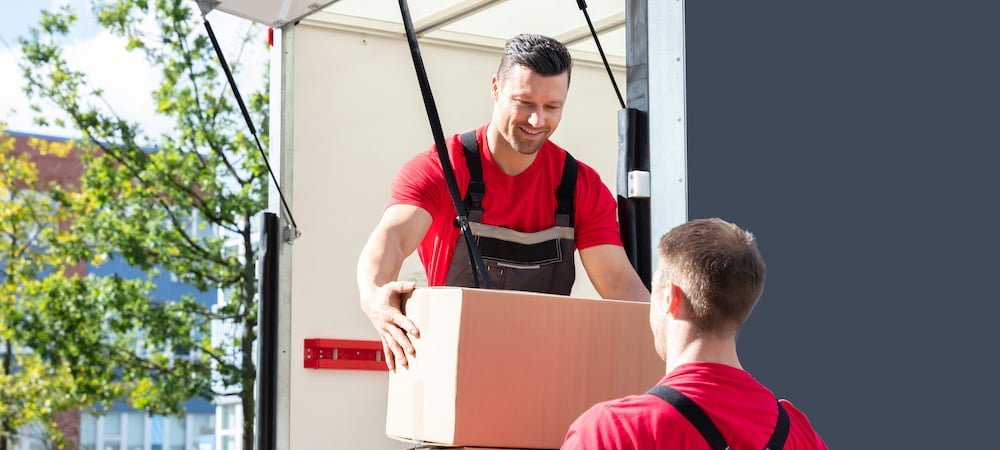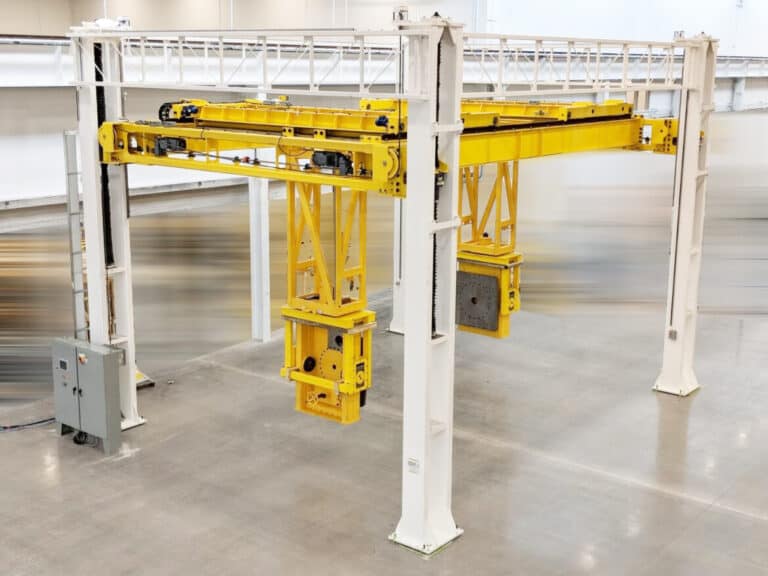Understanding the Inclusions of moving and Freight Forwarding on the planet of Domestic and International Shipping
Steering via the complexities of moving and Freight forwarding can be tough. Both processes include distinct treatments and demands that are essential for effective transport. Comprehending the distinctions in logistics, paperwork, and threat management is crucial for people and businesses alike. This understanding can substantially impact the effectiveness and safety and security of shipments. Numerous are unaware of the particular elements that affect the total experience and end results. What factors should one think about to assure a smooth transition?
The Basics of moving and Freight Forwarding
moving and Freight forwarding are fundamental components of the global logistics industry. They promote the transfer of products and individual valuables across international and domestic borders. moving mostly includes the relocation of families or individuals, including commercial and domestic requirements. It typically includes packing, loading, delivering, and unloading products at the destination. In comparison, Freight forwarding is concentrated on the delivery of products, commonly wholesale, using different transportation modes, such as sea, air, or land.freight forwarders function as middlemans, working with logistics to assure prompt distribution while navigating through complex guidelines and custom-mades procedures. Both procedures need careful preparation, company, and communication to assure effectiveness and reduce disturbances. Recognizing these principles is crucial for anyone entailed in logistics, as they prepared for even more innovative elements of delivery and transportation management.
Secret Components of Freight Forwarding Solutions
Freight forwarding services incorporate several vital components that guarantee smooth transportation of products. Trick duties of Freight forwarders include taking care of logistics, collaborating deliveries, and managing customizeds clearance. In addition, comprehending essential shipping documents is essential for compliance and efficient activity of freight.
Freight Forwarder Responsibilities
A trusted Freight forwarder plays a crucial role in collaborating the transport of products, guaranteeing that deliveries are managed efficiently and in compliance with guidelines. Their obligations incorporate numerous key tasks, including choosing ideal transport paths, working out Freight rates, and handling logistics. They work as middlemans between service providers and carriers, making sure that cargo is properly packaged and labeled for risk-free transit. Furthermore, Freight forwarders track deliveries, offering updates to clients regarding the condition and expected shipment times. They likewise examine and handle dangers related to transport, recommending insurance coverage choices as needed. By assisting in communication and documentation, Freight forwarders streamline the shipping procedure, reducing potential hold-ups and improving overall supply chain performance.
Shipping Paperwork Basics

Understanding Custom-mades Clearance and Paperwork
Exact documentation is important in the custom-mades clearance procedure, as it assures conformity with different guidelines. An introduction of personalizeds laws highlights the intricacies dealt with by shippers and Freight forwarders. Typical clearance challenges can significantly impact delivery timelines and costs, making understanding this aspect vital for effective logistics.
Value of Accurate Documentation
Steering with the complexities of international delivery requires a keen understanding of customs clearance and the critical role of documentation. Precise paperwork is necessary for ensuring that deliveries abide by guidelines and reach their destinations without hold-ups. Correctly prepared papers, consisting of bills of lading, industrial billings, and packing listings, promote smooth interactions with custom-mades authorities. Errors can lead to shipment hold-ups, penalties, or even confiscation of products. Complete paperwork aids in monitoring shipments and dealing with disputes. As a result, companies took part in moving and Freight forwarding must focus on precise documents methods to navigate the intricate landscape of global shipping successfully. This diligence not just streamlines procedures but additionally boosts client complete satisfaction by making sure timely distribution.
Customs Laws Review
Steering custom-mades laws is an important facet of international trade that straight influences the success of moving and Freight forwarding operations. Effective customs clearance needs an understanding of numerous laws, including tolls, tasks, and import/export limitations. Exact paperwork is important, as it guarantees conformity with lawful requirements and facilitates the efficient motion of products throughout boundaries. Trick documents usually include commercial invoices, packing lists, and bills of lading, which give in-depth info regarding the delivery. In addition, personalizeds brokers play a critical role in guiding complex guidelines, serving as intermediaries between shippers and custom-mades authorities. By keeping thorough expertise of custom-mades procedures, services can considerably lower delays and reduce expenses connected with worldwide shipping.
Common Clearance Obstacles
Numerous challenges can emerge throughout the custom-mades clearance process, frequently complicating the activity of products throughout borders. One substantial problem wants documents, which can lead to delays and fines. Importers and merchants have to ensure all required documentation, such as invoices, packaging lists, and certifications of origin, is total and precise. Furthermore, discrepancies in appraisal can set off scrutiny from custom-mades authorities, causing added duties or evaluations. Language barriers may likewise position challenges, as miscommunication can cause misunderstandings relating to regulations. In addition, changes in personalizeds policies can produce complication, necessitating consistent caution by shippers. Inevitably, overcoming these clearance challenges calls for thorough prep work and a clear understanding of personalizeds requirements to help with smooth worldwide purchases.
Product Packaging and Labeling Needs
Commonly neglected, packaging and labeling demands play an essential duty in the shipping procedure, guaranteeing that products are secured and quickly recognizable throughout their journey (international shipping). Proper product packaging safeguards things from damages during transit, while also promoting reliable handling and storage space. Utilizing appropriate materials, such as bubble cover, foam, or durable his explanation boxes, can prevent breakage and loss.Labeling is just informative post as vital. Exact and clear labels convey vital information, including the location, dealing with instructions, and components. Tags must follow laws specific to residential and global delivery, which might consist of hazardous products recognition or custom-mades declarations.Moreover, standardized labeling techniques simplify the tracking process and improve total logistics performance. By adhering to product packaging and labeling needs, organizations minimize the danger of delays, damages, or misdelivery. Ultimately, these practices add considerably to the success of moving and Freight forwarding procedures, ensuring a seamless shipping experience for all celebrations involved
Tracking Shipments: Value and Approaches
Reliable product packaging and labeling set the foundation for successful delivery management, but tracking shipments is equally vital in the shipping procedure. Delivery monitoring offers real-time exposure, which helps services and customers check the development of their products. This transparency enhances consumer satisfaction, given that customers can stay informed regarding shipment timelines and any potential delays.Several approaches promote efficient tracking. Barcode scanning is a typical method, making use of unique identifiers to keep an eye on plans throughout their trip. In addition, GPS innovation makes it possible for specific area monitoring, permitting timely updates and boosted logistics monitoring. Many shipping companies now provide digital systems and mobile applications that supply customers with very easy accessibility to tracking information.The relevance of shipment tracking can not be overstated; it reduces the danger of lost or damaged items, enhances functional performance, and fosters count on in between receivers and carriers. Integrating effective monitoring approaches is crucial for successful domestic and international shipping operations.
Insurance coverage Options for Your Item
Protecting insurance for goods en route is a vital factor to consider for organizations and individuals alike. Insurance alternatives vary based on the sort of delivery, value of items, and certain risks entailed. Common types consist of service provider liability, which covers loss or damages while in transportation, and full-value insurance policy, offering extensive insurance coverage for the total worth of the goods.Shippers might likewise consider aquatic insurance for global shipments, securing against dangers related to sea transportation. It is vital to assess the particular demands of the delivery and evaluate the terms and problems of any type of policy.Furthermore, recognizing exemptions and limitations is vital to stay clear of possible gaps in protection. Carriers should engage with insurance professionals to discover tailored options that fit their one-of-a-kind situations. Eventually, purchasing the appropriate insurance policy can minimize economic dangers and offer peace of mind throughout the shipping process.
Picking the Right moving and Freight Forwarding Service
When choosing a relocating and Freight forwarding solution, it is their website vital for people and services to very carefully evaluate their specific requirements and concerns. Aspects such as the quantity of items, location, and timeline play a significant function in this decision-making procedure. Investigating various companies is recommended; contrasting their solutions, pricing, and customer evaluations can reveal valuable insights.Additionally, it is necessary to consider the experience and know-how of the company in dealing with certain kinds of freight, especially for worldwide shipments that might involve customs clearance. Openness in rates, consisting of any type of covert costs, should additionally be scrutinized.Furthermore, reviewing the degree of client support used is crucial, as timely interaction can mitigate issues throughout transportation (lcl shipping). Lastly, validating the schedule of insurance coverage options assures that goods are shielded throughout the shipping process. By taking these organizations, steps and individuals can make educated options that align with their logistics needs
Regularly Asked Questions
What Kinds Of Item Can Be Shipped Internationally?

Just How Do Delivery Costs Differ In Between Different Carriers?
Shipping expenses differ significantly between carriers due to variables such as solution speed, cargo type, range, and extra services supplied. Each provider's pricing version shows these variables, influencing total shipping expenses for consumers.
Can I Ship Hazardous Products or Perishables?
Shipping harmful materials and perishables is subject to rigorous policies. Carriers frequently call for certain packaging, labeling, and paperwork. Shippers must assure compliance with international and local regulations to prevent fines and ensure secure transport.
What Should I Do if My Delivery Is Delayed?
When confronted with a shipment delay, one ought to initially get in touch with the service provider for updates. After that, examine any notices received, analyze different solutions, and maintain all events informed concerning the situation to reduce interruptions.
Exist Weight Purview for Delivery Containers?
Weight limitations for shipping containers vary depending upon elements like container dimension and shipping policies. Typically, basic containers have a maximum gross weight of around 30,000 to 32,000 kgs to guarantee secure transport and handling. In contrast, Freight forwarding is concentrated on the shipment of items, often in bulk, using various transport settings, such as sea, land.freight, or air forwarders act as middlemans, collaborating logistics to guarantee prompt distribution while maneuvering via facility laws and customs procedures. Trick responsibilities of Freight forwarders include managing logistics, collaborating deliveries, and managing personalizeds clearance. A trustworthy Freight forwarder plays a crucial duty in collaborating the transportation of goods, making sure that deliveries are dealt with effectively and in compliance with laws. Effective product packaging and labeling established the structure for effective delivery management, yet tracking deliveries is similarly essential in the shipping procedure. Numerous shipping business now use electronic platforms and mobile applications that supply individuals with simple access to tracking information.The significance of shipment tracking can not be overemphasized; it reduces the risk of shed or damaged goods, improves operational performance, and fosters trust fund between recipients and carriers.